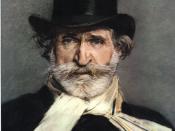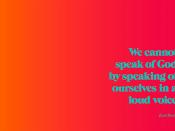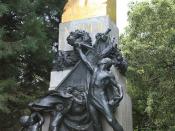The trend at the beginning of the 19th century to make instruments bigger, better and louder to accommodate the larger concert halls and larger audiences of the Romantic era was accompanied by similar changes in vocal performance style. Orchestras were becoming increasingly larger and playing more continuously throughout any given work. Commercial opera flourished, therefore theaters also grew in size. There was also a new aesthetic approach being brought to the forefront during the late bel canto/early Romantic period. Focus shifted from vocal virtuosity in improvisation and ornamentation to dramatic realism and a more direct expression of emotions. As a result, there was a need to somehow cultivate a greater vocal power. "The singer had to have power and range, clear articulation, energetic expression, the ability to project the voice effectively, vigorous attack and so on. It wasn't enough to merely sing well: a performer had to live his or her role intensely, bringing to the stage the character's many passions and moods."
On the technical side, this lead to a more scientific approach to singing: looking more into the physiology involved as well as [etude] exercises to perfect technically difficult feats.
Verdi was a watershed composer between the bel canto and Romantic era of opera. Through his work, the operatic aria as it had been known up to that point began to change. He followed the example of Bellini and Donizetti before him and altered the traditional form of the double aria (made up of a slow movement followed by a tempo di mezzo and then a lively cabaletta) in ways that made the opera fit together as one entire dramatic experience. In the new trend of melodrama, it was necessary to somehow make the contrast between sections of an aria viable by changing the textual material and often...


